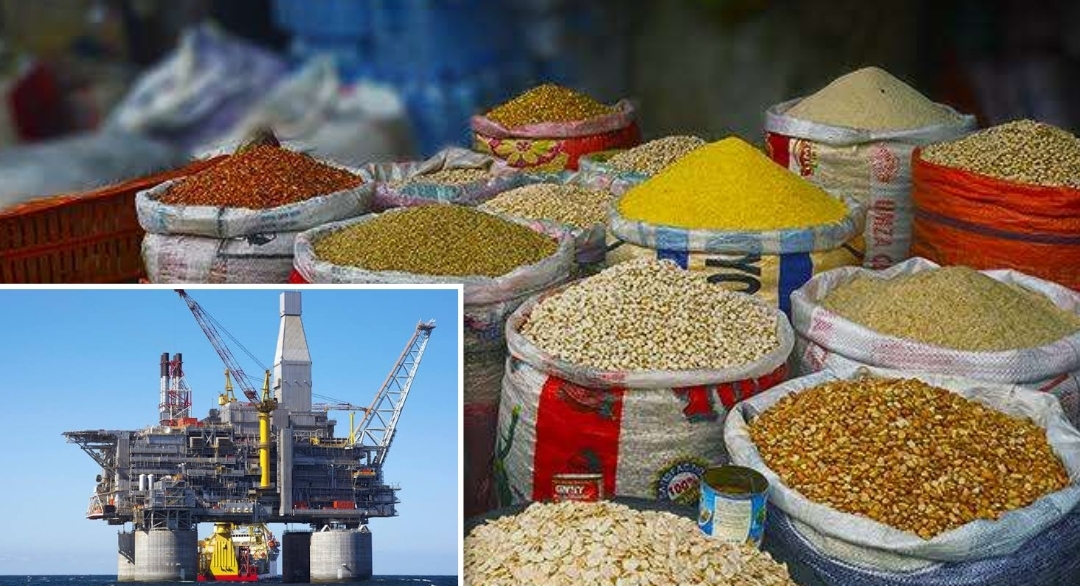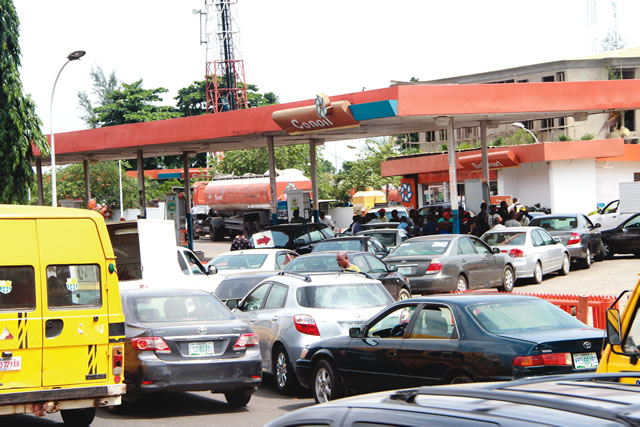Seven trends that will shape Nigeria’s economy in 2024: PwC’s Economic Outlook

Leading professional services firm, PwC Nigeria, has released its latest Nigeria Economic Outlook, highlighting the seven key trends that will shape the nation’s economic trajectory in 2024.
PwC’s report projects a marginal decline in inflation and 3.1% rise in GDP, and notes that achieving sustainable growth in 2024 requires balancing ambitious fiscal reforms with effective budget implementation. It also stresses the importance of aligning fiscal and monetary policy to stabilise prices and reach target goals.
The seven key trends that will shape the Nigerian economic outlook in 2024:
- Executing fiscal reforms: balancing ambition with budgetary implementation
Nigeria’s ambitious revenue targets for 2024 depend heavily on oil prices and reform implementation. Historically, actual revenue realised has averaged less than 70% of the total budget. Achieving budgeted oil revenue in 2024 will depend on OPEC oil production quota, international oil prices, improved security in the oil-producing regions, and geopolitical factors.
The proposed fiscal reforms have potential to boost non-oil revenue and shape the economy, but success hinges on effective budgeting and execution.
2.Evolving monetary policy stance: finding the right framework and instruments to achieve price stability
CBN has deployed several monetary policy tools and instruments to achieve price stability. Despite the deployment of monetary policy tools, the inflationary pressure has persisted. To succeed, the Central Bank of Nigeria (CBN) must independently pursue inflation goals, emphasising inflation control, and maintaining a stable financial system.
Finding coherence and alignment between fiscal and monetary policy to stabilise prices may enable the achievement of statutory and policy targets in 2024. CBN clarity of policy, transparency of market operations and consistent communication will enhance stability to exchange rate price discovery and market activities.
3. Investors’ will be cautiously optimistic
Foreign portfolio investment flows to the capital market may remain cautious due to residual challenges. Investors’ outlook may be dampened by downgrades from FTSE Russell and MSCI, specifically due to delays in capital repatriation. Despite this, Moody’s, Fitch, and S&P maintained a speculative credit rating due to drawbacks on reforms and several fiscal challenges that persist.
FDI flows are expected to improve in 2024 driven by notable expansion in the growing ICT and Manufacturing sectors.
4. Undulating pathways to unlocking productivity in the economy
Limited fiscal space for public investment and difficulty attracting private investments constrain the ability to make essential infrastructure improvements.
Infrastructure funding may remain insufficient in 2024. The allocated infrastructure spending budget for 2024 is ₦1.32 trillion, falling short of both the World Bank’s suggested 70% infrastructure-to-GDP benchmark (currently at 30%) and the yearly $150 billion requirement specified in the National Integrated Infrastructure Master Plan for 2021- 2025.
Security spending in the past nine years amounted to ₦14.8 trillion. Despite increased spending, insecurity remains a challenge and jeopardises national stability, negatively affects economic activities and undermines investor confidence.
5. Persisting vulnerability to external pressures with potential of ‘shocks’
Geopolitical, economic, environmental, political and trade trends will shape the dynamics and outlook for the Nigerian economy in 2024. If the Russia-Ukraine war intensifies, it could lead to increased global energy and commodity supply risks.
Nigeria may experience increased inflation and food security challenges due to grain import disruptions and high petroleum product cost.
The outcome of elections in several countries globally, especially USA, UK, and Taiwan may shape the dynamics of trade and capital flows around the world in 2024.
6. Consumers may likely adjust better to the evolving policy and macro realities
Consumer spending may be pressured in 2024 due to rising prices of goods and services (increasing food and transportation costs), coupled with lower disposable income. However, private consumption is expected to be marginally better than 2023.
Poverty levels are projected to increase to 38.8% in 2024. Despite the low unemployment rate in the country, low consumer spending and purchasing power remains an issue, especially in the absence of commensurate increase in minimum wage to mitigate the inflationary growth in the economy.
7. Improved sectoral development riding on reforms
GDP may grow marginally by 3.1% in 2024 on the back of sustained policy reforms. The growth projection is driven by ongoing reforms, recovering oil production, and a proactive policy environment.
Possible downside risks to this projection include sustained rise in fiscal debt, elevated interest rates, high inflationary levels, foreign exchange liquidity pressures, high exposure to shocks in the global value chain, poor non-oil revenues and sector development.
In terms of sectoral growth, the main drivers of GDP growth in the last 12 months have been the financial services, information and communication, and utilities sectors. The firm expects these sectors to continue to drive growth in the short term. Further, sectoral growth will be driven by a combination of demand dynamics, investment, government reforms and trade dynamics.
We have recently deactivated our website's comment provider in favour of other channels of distribution and commentary. We encourage you to join the conversation on our stories via our Facebook, Twitter and other social media pages.
More from Peoples Gazette

Politics
Katsina youths pledge to deliver over 2 million votes to Atiku
“Katsina State is Atiku’s political base because it is his second home.”

Abuja
Fuel scarcity hampering businesses in Nigeria: ACCI
The leader of the Organised Private Sector in Abuja called on NNPCL to expedite the distribution of petroleum products across the country.

States
Ibadan: Four arraigned for stealing IBEDC transformer cable
The defendants are charged with conspiracy and stealing, but they pleaded not guilty.

States
Police arrest activist for alleged defamation of Governor Alia’s aide on Facebook
Mr Mojekwu is charged with criminal conspiracy, cyberstalking and defamation of character.

Economy
Businesses grounded in Maiduguri fish market as traders stage protest
The protesters’ spokesman, Abdullahi Bako, said they were demanding to hold a congress to determine the association’s future and conduct a fresh election.

Agriculture
Bayelsa: Gov Diri slams oil companies’ ‘recklessness’, seeks UN support to tackle environmental degradation
The Bayelsa government has urged the United Nations to support efforts towards tackling environmental degradation in the Niger Delta region.
![Anambra governor, Charles Soludo [Credit: Twitter/Soludo]](https://gazettengr.com/wp-content/uploads/IMG-20230325-WA0006.jpg)
States
75-year-old barber raped our little girl, gave her mango to keep quiet: Father
“The suspect took her to his room to give her mango and also told her not to answer when we were calling out her name,” said the girl’s father.








